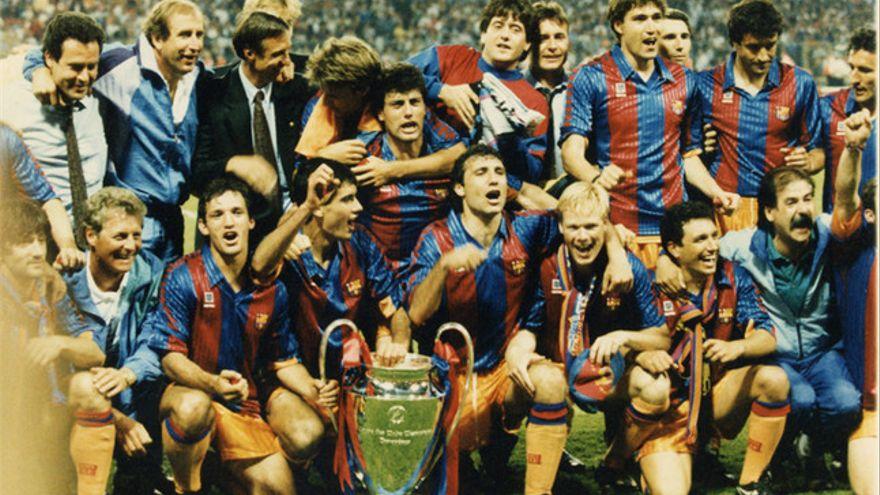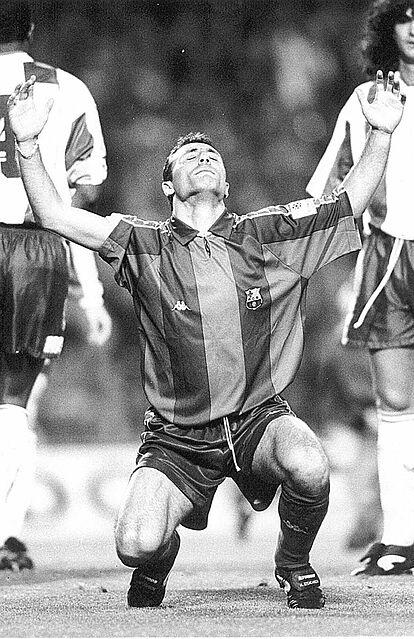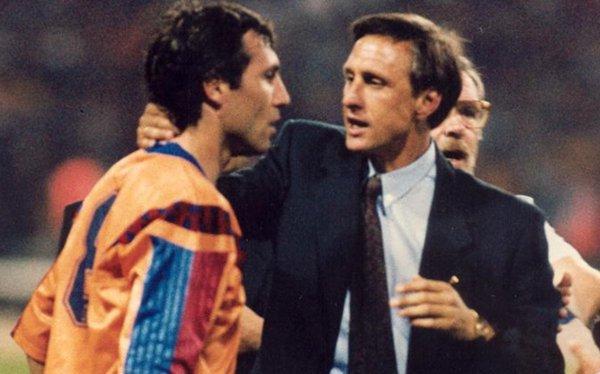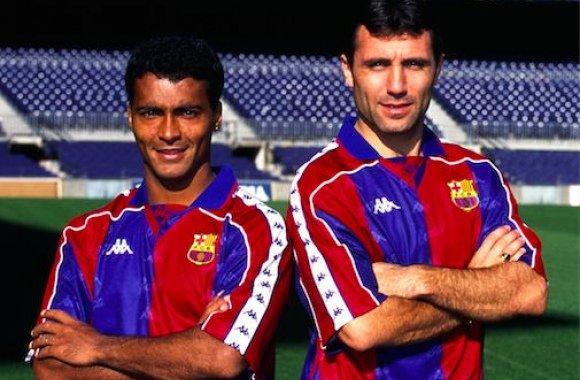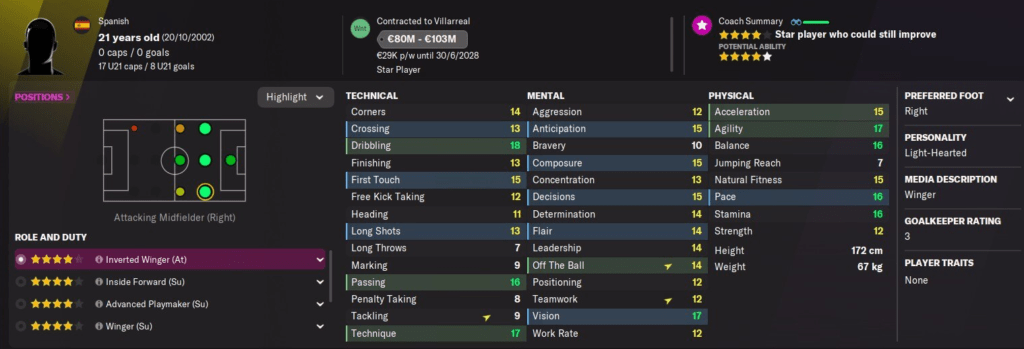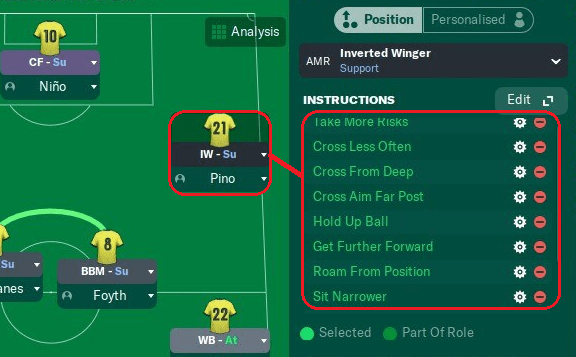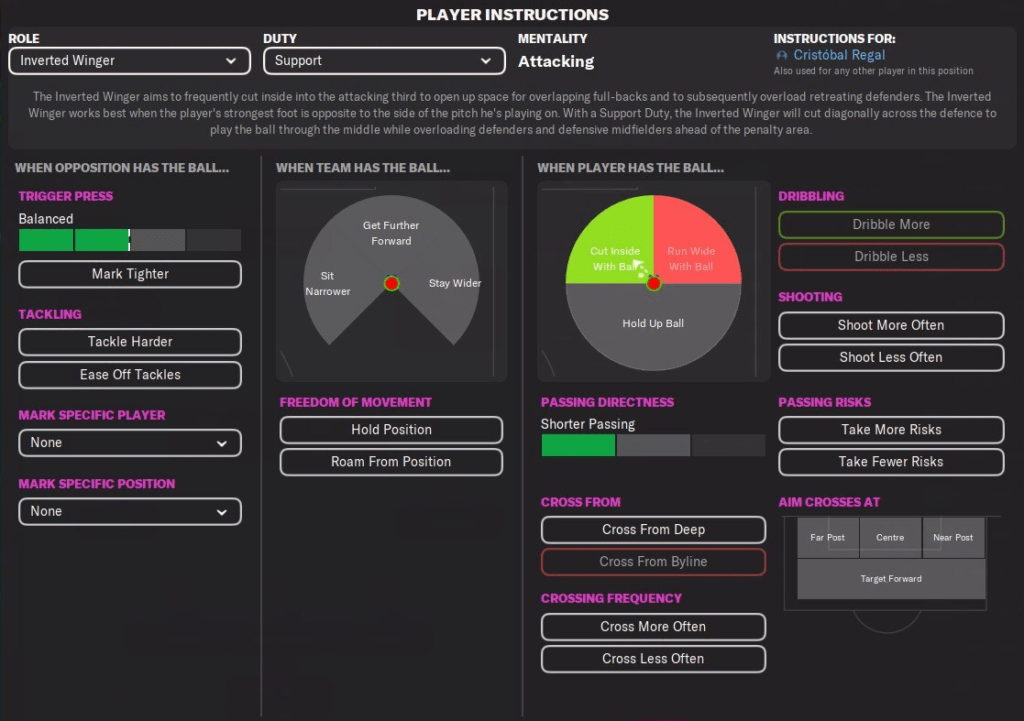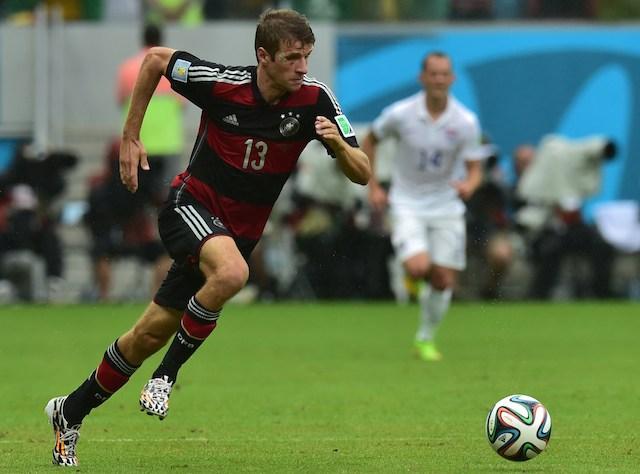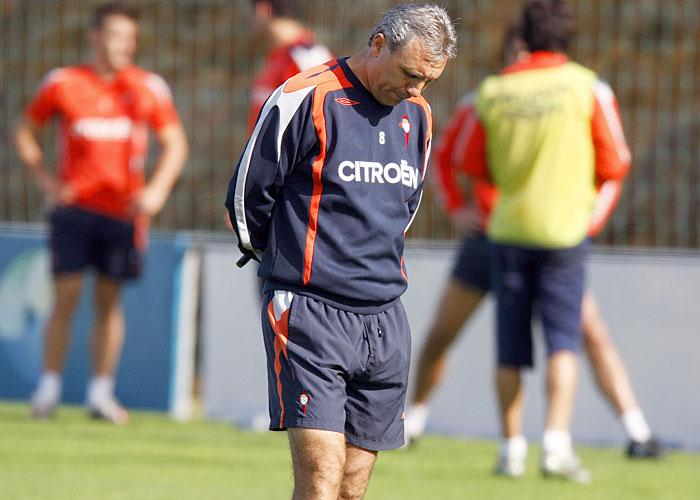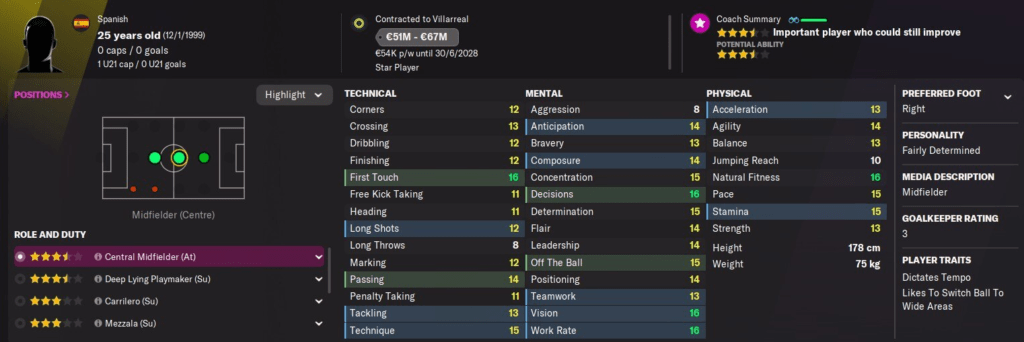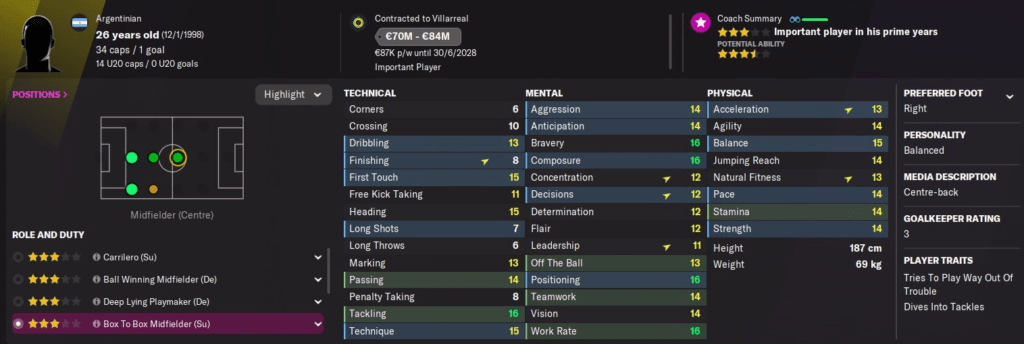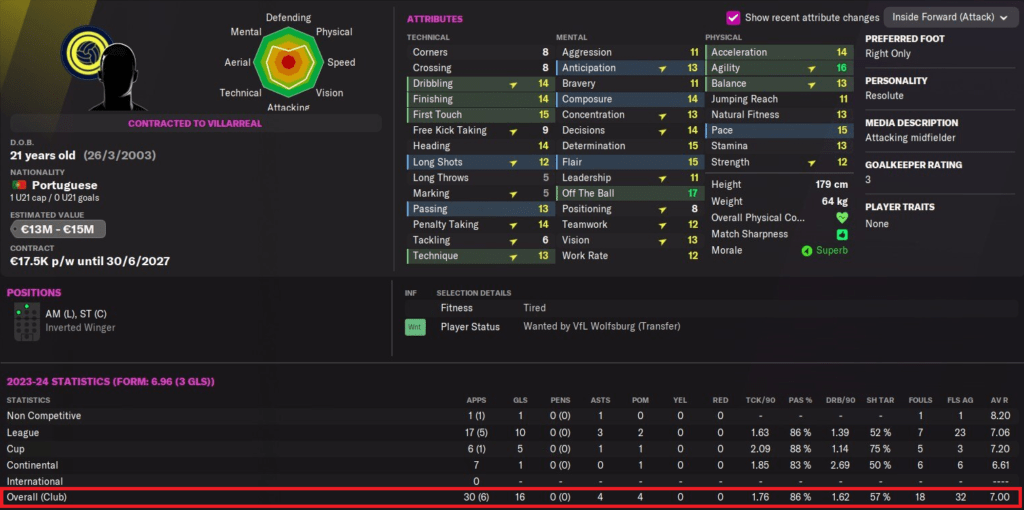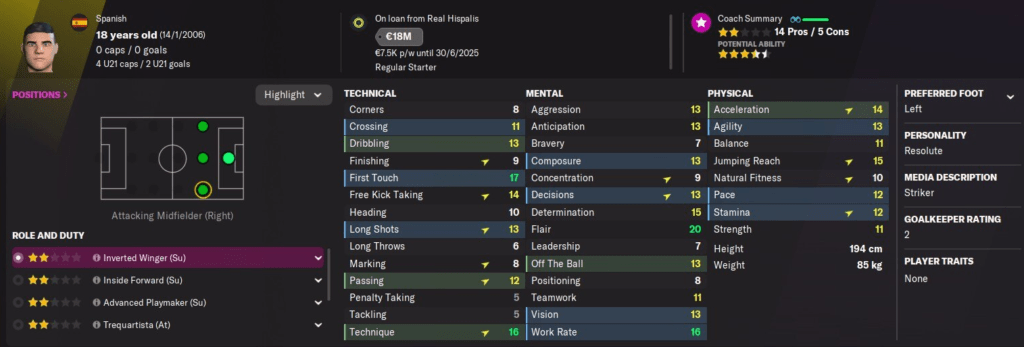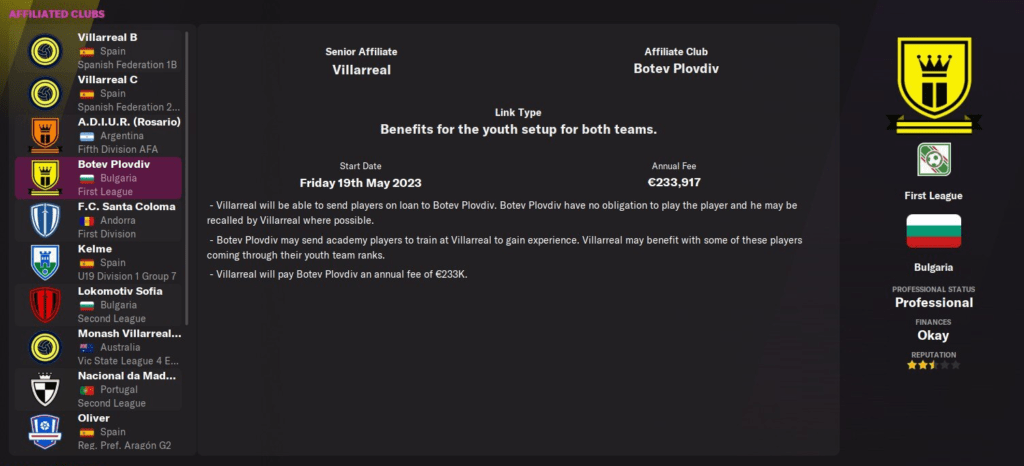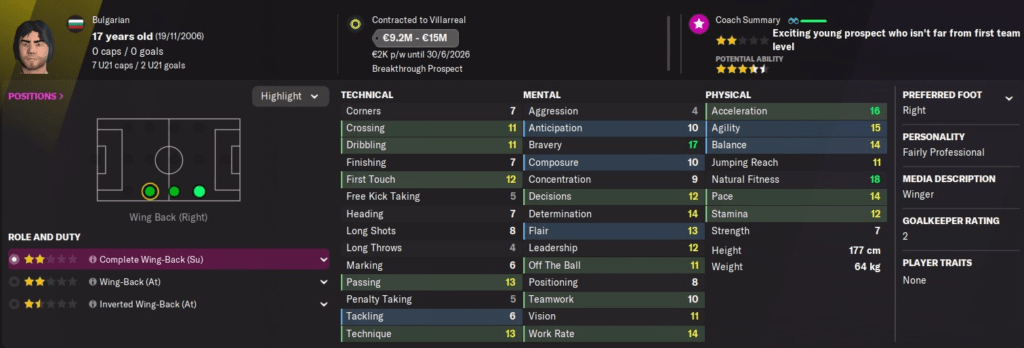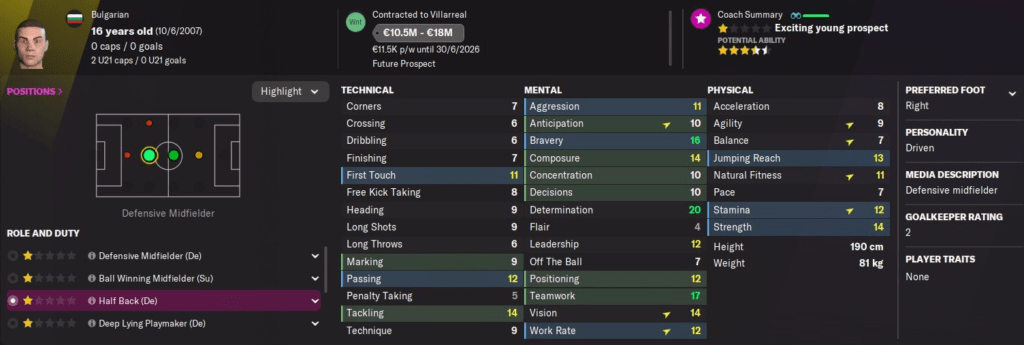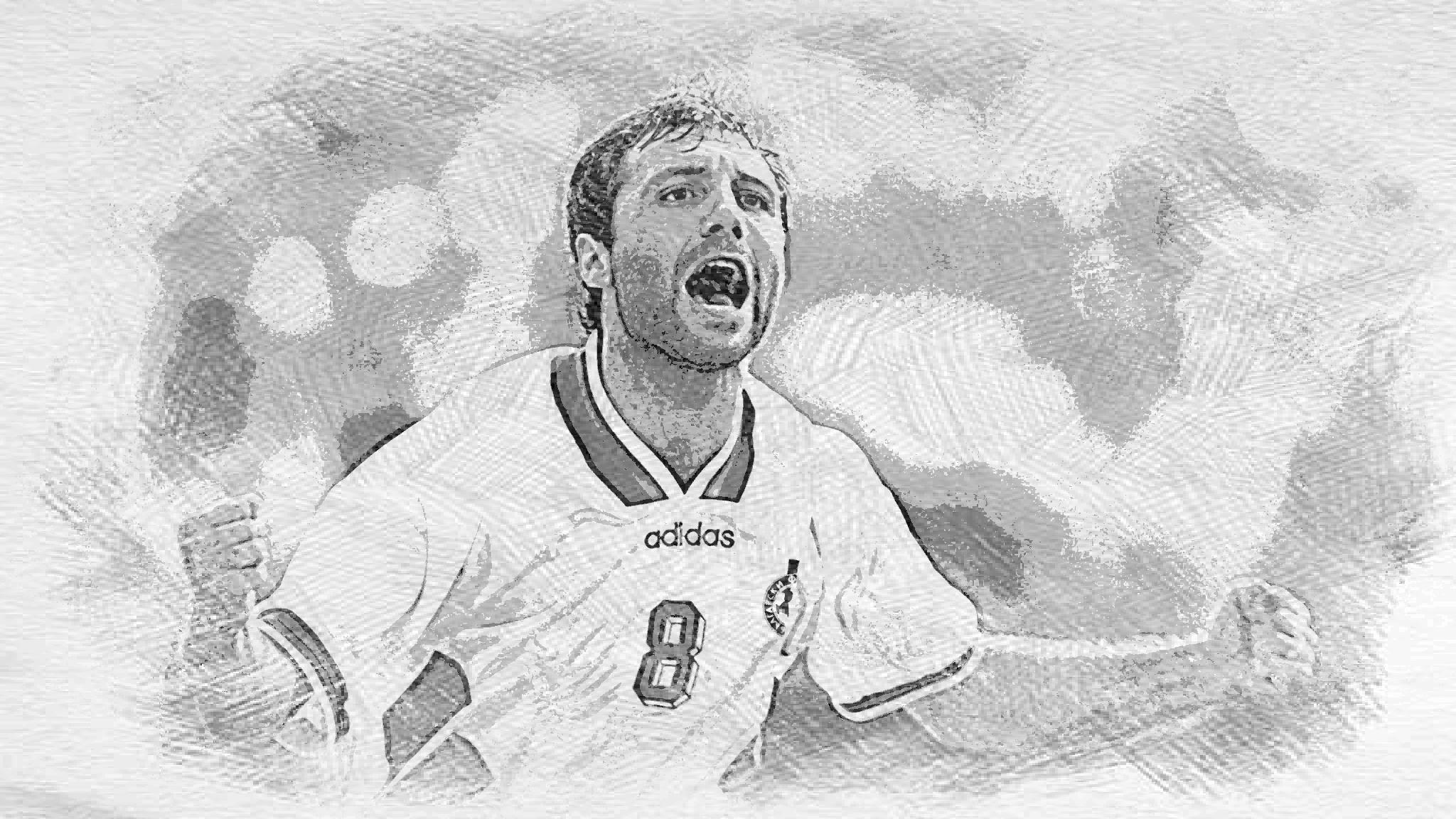
Total Football Journeyman: Story of One Bulgarian in Spain
Almost 30 years to this day, on May 20, 1992, Johan Cruyff’s Barcelona Dream Team won its first Champions League title (European Cup at the time). In 1990s they went on to win 4 consecutive LaLiga titles, an achievement that previously only belonged to Real Madrid. The Dream Team was one of the best collections of footballers to ever wear Barcelona’s kit. And every single one of these players was handpicked by Cruyff based on their ability to play by his rules. The rules of Total Football.
Johan Cruyff’s Dream Team
To mould Barcelona into a Total Football super-club, Cruyff needed to assemble a very special team. A team consisting almost entirely of “Total Footballers”. This monumental recruitment lasted about 3 years from 1988 to 1991, when the fruits of Cruyff’s labour started to bear.
At Barça, he brought in players such as Pep Guardiola, Jose Mari Bakero, Ronald Koeman, Michael Laudrup, Romario, Gheorghe Hagi and Hristo Stoichkov. Some of them were already superstars in their own countries before joining Cruyff’s Dream Team. So getting them all to play together was a truly special, and at times challenging, project. But what they all had in common was that they were all “Total Footballers”. By definition veru well-rounded players who excelled in playing in both attack and defence. Only extremely determined, hard-working players with teamwork-first mentality could adapt to Cruyff’s grueling football philosophy. He needed players that could work collectively as a unit and cover every single foot of the pitch. In such an exceptional group, Hristo Stoichov stands out even more. A crowing jewel in Cruyff’s masterpiece. At the time of his arrival at Barca, he was heralded by supporters as an almost messianic figure.
With the Total Football’s God Cruyff at the helm, the youthful and resurgent Barcelona was primed to break Real Madrid’s stranglehold over La Liga. Prior to his move to Barcelona, young Stoichkov already made a name for himself as the best Bulgarian footballer of his time and the best forward in Europe. He was rewarded for his goals-scoring ability with a European Golden Shoe in 1990. That same year, Cruyff became obsessed with bringing the hotshot Bulgarian to Barcelona for the 1990-1991 season. And like in all of his endeavors, nothing could stand in the way of Mr. Total Football.
In Spain, Stoichkov quickly showcased his full potential, playing an important role in the 1992 European Cup title win. In only his sophomore season with the team. Under Cruyff’s tutelage, Stoichkov quickly developed into one of the most prolific forwards in the world. But aside from all the trophies and awards won by Stoichkov, his biggest accomplishment is that he developed into a Total Footballer par excellence.
The Birth of A Total Footballer
At the time when Cruyff was trying to mould Barca into the world’s first Total Football super-club, his Bulgarian wonderkid had all the required attributes for the Dutchman’s favoured style. Stoichkov was an incredibly versatile player. A complete package. A powerful and physically strong athlete who was most famous for his physicality and explosive pace, acceleration and dribbling at speed. He also possessed an incredible drive to succeed. A “driven” player in every sense of that word. It earned him his nicknames “El Pisolero” (Gunsligner) and “Камата“ (Dagger in his native Bulgarian). But also led him into trouble. At times Stoichkov’s explosively aggressive temper got the best of him.
Nevertheless, Stoichkov’s exceptional dedication to the game and determined drive was exactly what Cruyff was looking for. These qualities helped Stoichkov in becoming a unique sought-after player and one of the most lethal and versatile forwards. But he started his footballing education as a defensive fullback on the left wing. Playing as a fullback allowed him to perfect not only his crossing ability but also his work-rate linked with more defensive responsibilities. Later playing at Barca, allowed him to hone his more creative side as a supporting forward.
Playing alongside the pure goal-scorer Romario, revealed that Stoichkov could also be a very creative and technically gifted player. He often played through the middle in the creative attacking midfielder role. Or as a secondary striker capable of providing key assists for his teammates. This led the Bulgarian to forming a lethal partnership with Romario.
That season [1993-1994] Romario and Stoichkov were a force of nature, blowing everyone and everything to bits
Football writer Sid Lowe on Romario-Stoichkov striker partnership at Barcelona
Stoichkov did not become Barca’s model Total Footballer until 1993/94 season when Romario, Cruyff’s Dream striker, arrived from PSV Eindhoven.
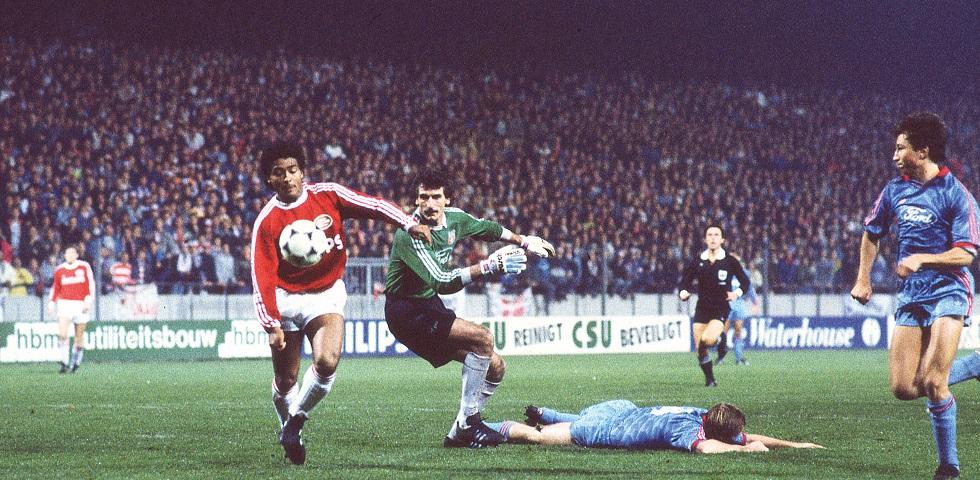
Romario and Stoichkov quickly developed chemistry when played together. Due to Romario’s pure instincts as a central goal-scorer Stoichkov had to move to the flank. This however allowed Stoichkov to further improve as a footballer. This time honing his skills in a wide attacking creator role. So after years playing as a fullback, winger and striker he now completed his skillset by becoming one of Barca’s best supporting wingers. As a wide creative attacker in Cruyff’s 3-4-3 Diamond, the Bulgarian thrived. He was granted tactical freedom to terrorize from deep with endless pinpoint passes towards the Brazilian. Their interplay was instrumental in securing Barcelona’s 4th consecutive La Liga title.
In the game, it’s hard to find a player like Stoichkov or a role that would suit such a player. At Villareal (in 2023/24 season), the one player who could potentially grow into Stoichkov-style attacking/creative force is Yeremy Pino. In many ways, the young Spaniard is developing into a similarly well-rounded attacker like the Bulgarian was.
He definitely possess Hristo’s exceptional dribbling, pace and creative capability. If not exactly the same level of goal-scoring prowess. But there is potential for him to become more clinical in front of the goal. Just need to improve finishing and ability to exploit space (off the ball).
Like finding the right player, choosing the suitable role for your wide Total Footballer is not easy. There is no role in the game that does everything you’ll want this player to do. Sometimes, you must create a hybrid role by fiddling with a generic role within the game. Preferably a role that does not have many hardcoded individual instructions.
Such as an Inverted Winger. It is actually a perfect starting platform for creating a wide Total Footballer role. For this reason it is one of my favourite roles in the game. Because it’s so flexible in its individual instructions, you can really modify it into a role that you need.
It’s a wide attacker role, but does not cross more or dribble to the byline like a winger would. While it tends to cut inside, it can also be instructed to stay wider. And you can further reduce the inside forward-like behavior if you play a same foot as the wing player here. Nor is it a ball magnet like your typical wide playmaker. So even though you can give it playmaking tasks, it can still act as your attacking runner/space exploiter. My dream is to find a player that combines playmaking and attacking the space in a similar manner to Stoichkov. Or to those born after 1990, Thomas Müller.
Thomas Müller = Mr. Versatility. A much more technical and tactically intelligent player than then your typical goal-scoring forward. His greater technical skill, vision and creativity makes him more elusive and harder to mark. Thus an ideal player to make the best of any chances created by his #9 striker partner. Thomas Muller. Someone who is almost like a poacher in his single-minded drive to find pockets of space to exploit. But at the same time is very hard-working. Work ethic coupled with great vision and football IQ can help player craft chances for himself or others when none exist. Your perfect attacking player.
So to summarize, my ideal “Stoichkov” role has two responsibilities:
1st Responsibility: Chance creation.
2nd Responsibility: Finishing chances created by the #9 Striker. Scoring goals through hard work and smart manipulation of space.
Key Attributes: Off The Ball, Decisions, Anticipation, Finishing, Composure, Vision, Acceleration, Pace, Teamwork, Passing and Workrate.
Defensive Positioning: Starts positioned between midfield and attack. In a deeper position to better assess the situation in front of him and to pick up any back-passes, headers from the central striker. This is the reason why I chose Support duty for my modified Inverted Winger role. In my tactic there is virtually no difference between Support and Attack duty IWs. They both have the same mentality and can be given the same individual instructions. But most importantly, the Support duty Inverted Winger will start in a deep position than his Attack duty counterpart.
Stoichkov The Manager – Following In The Footsteps of Cruyff
Unlike his one-time mentor and manager, Johan Cruyff, Stoichkov didn’t start off his own managerial career with the same rate of success. He bounced around a variety of managing jobs ranging from Bulgarian National Team, South African Premier League and back to Bulgaria’s giant CSKA Sofia. At one point Stoichkov even had a short disappointing stint back in Spain. This time around as a manager of Celta de Vigo. That job only lasted for a few months as he was sacked following the team’s slump in the league.
Yet, in life there is always room for second chances. And all the best stories involve grabbing victory from the very brink of defeat.
The success story of Hristo Stoichkov is an example of how one should never give up on a dream. It is a story on an individual with an extraordinary drive to succeed in all aspects of football. That is because Stoichkov as a footballer who already tasted international glory during his playing career would not be fully satisfied until he succeed as a manager too. Very much like his teacher, Johan Cruyff. Despite many setbacks, Hristo Stoichkov would never give up on his dream of managing. For a good reason.
Like many stories in Football Manager, sometimes it takes many failed starts with different clubs before you can finally settle upon a successful formula. The key is never to give up.
Building a Total Football Super-Team
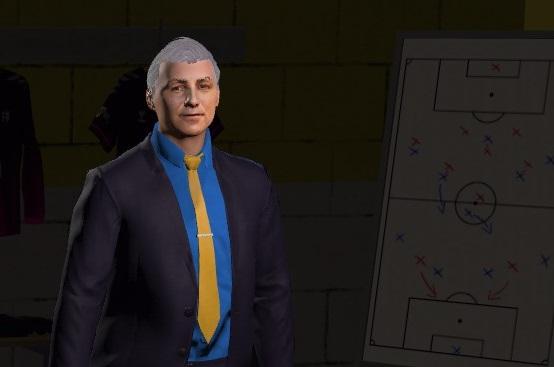
In Stoichkov’s case, finally at Villareal he was able to find a club that matched his level of ambition. But it has not been easy. Almost three full seasons later and Villareal is still looking for its first La Liga title. It has been challenging with the likes of world-class Real Madrid, Barcelona and even bitter local rival Valencia getting in the way of league glory. Although at least with Spanish Cup, Stoichkov’s Villareal had far more success. With the Bulgarian at the helm, they managed to win two Copa Del Rey trophies in two consecutive years. And have advanced to the yet another final in 2024. This historic game (and potentially 3rd cup title for Villareal) will be played on April 20 against Real Madrid. Yet domestic cup victories are mere consolation prizes for any manager with his sights set on the league title and Champions League trophies.
So without any La Liga or Champions League titles to show for his success, why have Hristo Stoichkov and his Villareal garnered so much media attention? For once there his ability to keep the club at the top of a very competitive league. In the last two seasons, they managed to finish 3rd and 2nd. While in 2024, their title hopes are not finished.
On a larger scale, what makes Stoichkov’s handling of Villareal stand out is his commitment to getting the best out of his current players and developing youth. He is not one to spend big on the transfer market. It is because he understands that buying trophies is never a viable option for a club without the financial power of Real Madrid or Barcelona. Stoikhov has taken the other path to glory. That is by nourishing homegrown talent and giving opportunities to youngsters that other clubs would not play because they need to give more game time to their own expensively-bought stars.
The example of Yeremy Pino you already saw. But there are also other homegrown stars that were able to reach their full potential under Stoikhov’s leadership. Players such as Manu Morlanes.
This Total Footballer’s value has more than tripled in the last 2 years. Deservedly he and Juan Foyth have formed a solid-as-rock 1st choice pairing in Villareal’s midfield. The Argentinian is a perfect example of the kind of versatility that Stoichkov looks for in his players. Foyth is a dynamo capable in both attack and defence and able to play everywhere from midfield to left flank.
Finally, giving second chances to castoffs from other clubs has become a running theme at Stoichkov’s Villareal. Players like Joao Resende who stagnated in their home club’s B team or on loan in less prestigious leagues, have flourished after only a short time at Villareal. Resende’s 16 goals in 30 games is only one sign of how well the 21 y.o has integrated into Villareal’s 1st team squad.
Cristobal Regal is another such example of targeted player recruitment. After graduating from Real Hispalis’ renown academy in 2022 he was not getting game time at high enough level to match his skills. And a very impressive skillset it is! Great jumping reach and strength coupled with exceptional flair, first touch and technique. All combined in one hard-working package. This rare combination in one so young is exactly what attracted Villareal scouts. But in the end it was Stoichkov’s insistence that convinced Villareal directors to take a chance of a Spanish wonderkid. Now he is tied down for a long-term 2 year loan with an optional $17 million fee at the end. Seeing how Regal has developed since joining the club, the fee will be more than worth it.
These youngsters’ fast development is partly due to the high level of training facilities and coaching that Hristo insisted upon. You cannot create a Total Footballer factory without investing in the major facilities and personnel.
State-of-the-art facilities are nothing without skilled personnel to run them. And Stoichkov, who honed his own skills at Barcelona’s world-class training grounds, knows this better than ever. While at Barca he had the best coaches to help him develop into the top-class class. Having a large coaching team sometimes can be even more important having a world-class squad. Football stars age and retire after a few years but coaches and trainers can work for decades helping to develop class after class of fresh recruits. Best teams in the world stay at the top not because of how much proven talent they buy but because of how much they invest in future talent.
The final piece in the puzzle that is Hristo Stoichkov’s unlikely success at Villareal lies in the Bulgarian manager’s staunch commitment towards developing the future of the club – its youth. Despite giving chances to young players from other clubs, Stoichkov definitely did not neglect Villareal’s own academy graduates. Although he decided to give his own unique twist on the youth intakes at the club.
As an immigrant who left his native country behind in search of fortune in Europe, Stoichkov has not forgotten his Balkan roots. Hailing from the picturesque city of Plovdiv in Bulgaria, Stoichkov helped to put Bulgaria on the footballing map of Europe in the early 1990s. Alongside other talented countrymen like Yordan Lechkov and Krasimir Balakov, Stoichkov spearheaded the real “golden generation” of Bulgarian National Team. This era culminated at 1994 World Cup where Bulgaria reached the semi-final. Ultimately they lost against Italy but the 4th place finish still remains Bulgaria’s best international performance.
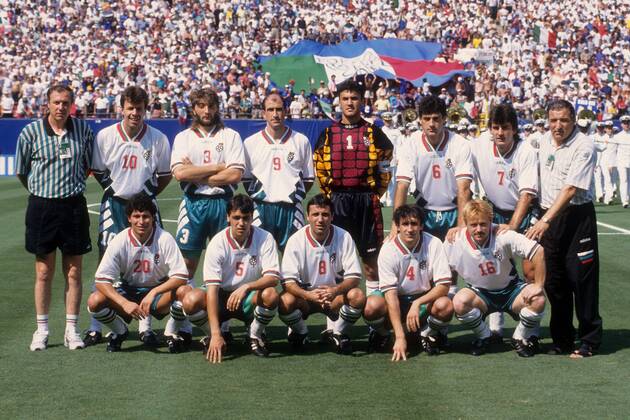
At the conclusion of the tournament, Hristo Stoichkov was awarded the Golden Boot which he shared with Russian Oleg Salenko as the top two scorers in the tournament. Stoichkov and Krasimir Balakov was named in the 1994 World Cup Dream Team. Then in December of 1994, Stoichkov was awarded the FIFA Ballon D’Or trophy for his skills and leadership. He became the first Bulgarian and third Barcelona player to win this trophy. Undeniably, Stoichkov’s international success fuelled the dreams of the generation of Bulgarian footballers born after.
The Architect of Bulgaria’s Next Golden Generation
Shortly after taking over manager duties at Estadio de la Ceramica, Stoichkov decided to create an important long-term link between the Spanish club and his native country. A link that is already starting to bear considerable fruits.
The Balkans and Bulgaria are an important football region that produces a lot of raw talent. But unfortunately countries like Bulgaria still do not possess adequate facilities to help their young footballers reach their full potential. Even the top flight clubs like CSKA Sofia cannot match the quality of infrastructure that Barcelona’s La Masia has. So if one could bring these youngsters to state-of-the-art training facilities then it would theoretically be a match made in heaven? That is what Stoichkov betting on in his long-term Bulgarian investment. A low-cost investment which Villareal’s directors are hoping will pay back tenfold in the future.
And honestly, the valuable fruits of this Spanish-Bulgarian link-up are already starting to grow. A few of the Bulgarian-born youths that entered the last two academy intakes will pursue their football education in Spain. Hopefully, the access to the top-of-the-line facilities and world-class coaches will help them in reaching their full potential.
Players such as 17 y.o Deyan Markov. A product of CSKA 1948 Sofia academy who decided to continue his education in Spain. He did not stay with Villareal’s under-19 squad for how long however. After only a few months in Spain, he has developed to the point that he already earned himself a spot in Villareal’s B Team in the 3rd tier of Spanish football pyramid. A truly exciting prospect who is not far from the First Team level.
Another Bulgarian prospect who is not far from the First Team level is Tsvetomir Krumov. He is only 16 years old but is already touted as a generational talent in defensive midfield. Perhaps Villareal’s very own Sergio Busquets in the making.
And then finally, Hristo Stoichkov’s son Ivan has joined the academy last year. To his father’s great satisfaction, he followed in his footballing step. Although not as a forward but as a goal-keeper. And he is developing into a pretty decent one so far.
On that note, I will end this before I start to ramble too much. Look forward to my future articles chronicling the exploits of this Bulgarian Golden Generation in Spain. Thank you for reading! If you enjoyed this write-up, then please follow us @ Dictate The Game’s Facebook, Dictate The Game’s Twitter
Well, if you read this far…Then here is a little bonus for you, the faithful dictatethegame.com readers. Just wanted to let you know that Hristo Stoichkov and everyone at Villareal has a good reason to celebrate tonight! Check CrusaderTsar’s twitter feed shortly after The latest news, before it hits the printing presses.
